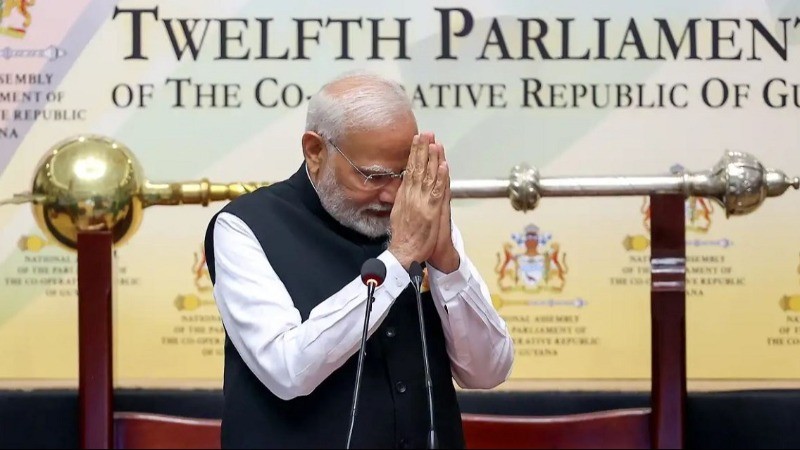
WASHINGTON: Prime Minister Narendra Modi has been honored with the esteemed Dr. Martin Luther King Jr Global Peace Award for his dedication to improving the welfare of minority communities both in India and globally. The award was presented during the launch of the Association of Indian American Minorities (AIAM), a new non-governmental organization (NGO) focused on advocating for Indian-American minorities in the United States.
AIAM’s Mission to Unite Indian-American Minorities
The AIAM was officially launched on Friday at the Sligo Seventh-day Adventist Church in Maryland. The organization aims to unite and support the various minority communities within the Indian-American population. The launch event, attended by prominent community leaders, emphasized the importance of inclusive development and equal opportunities for all.
PM Modi’s Leadership Celebrated with Award
At the event, PM Modi was honored in absentia with the Dr. Martin Luther King Jr Global Peace Award. The award recognized his leadership in promoting inclusive growth in India. Presented jointly by Washington Adventist University and AIAM, the honor highlights his efforts to uplift minorities, support secularism, and maintain social harmony in India.
Jasdip Singh, the newly appointed Founder and Chairman of AIAM, spoke about the organization’s commitment to realizing PM Modi’s vision of a “Viksit Bharat” (Developed India) by 2047. Singh emphasized that under Modi’s leadership, India has adopted an inclusive approach, ensuring equal opportunities for all citizens, regardless of religion, caste, or background. He also pointed out that AIAM would act as a key platform for Indian-Americans to engage in multicultural discussions and contribute to American society.
Award Reflects Global Values of Justice and Equality
The award, named after Dr. Martin Luther King Jr., celebrates the importance of global peace, justice, and minority empowerment—principles that align with PM Modi’s governance. The Indian government’s efforts to provide equal opportunities have made significant strides in promoting unity and progress, reducing divisions in society.
AIAM Represents Diverse Indian-American Communities
AIAM’s leadership team reflects the diversity of Indian-American minorities, with representatives from various communities, including Sikh, Christian, Hindu, Muslim, and Indian Jewish groups. Its seven-member Board of Directors includes individuals such as Baljinder Singh and Dr. Sukhpal Dhanoa (Sikh), Pawan Bezwada and Elisha Pulivarti (Christian), Dipak Thakker (Hindu), Juned Qazi (Muslim), and Nissim Reuben (Indian Jewish).
Support for PM Modi’s Vision of Unity in Diversity
Satnam Singh Sandhu, Member of Parliament and convener of the Indian Minorities Federation, praised PM Modi for transforming India into a nation that embraces unity in diversity. Sandhu highlighted the success of the “Sabka Saath, Sabka Vikas” (Together, For Everyone’s Development) initiative, which has promoted equal opportunity and eliminated appeasement politics. He added that PM Modi’s leadership has strengthened India’s global standing while upholding secularism and communal harmony.
Minorities Express Support for PM Modi’s Secular Leadership
Members of India’s minority communities have expressed their gratitude for Modi’s commitment to India’s secular constitution. They rejected divisive narratives and underscored that minorities are now actively contributing to the country’s growth and development, resisting attempts to sow division.
AIAM’s Role in Strengthening Indian-American Ties
AIAM is set to play an essential role in fostering stronger connections between Indian Americans and their homeland. Through its efforts to unite the Indian-American diaspora, the organization hopes to amplify the community’s contributions to the multicultural landscape of the U.S. while supporting PM Modi’s vision of inclusive prosperity. The long-term goal of AIAM is to encourage collaboration and mutual understanding among various minority groups, ensuring that all voices are heard in the pursuit of social and economic progress.